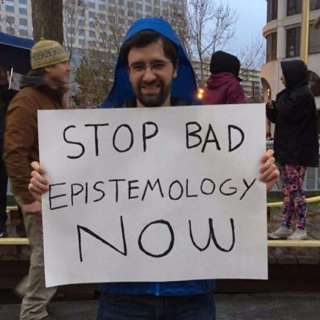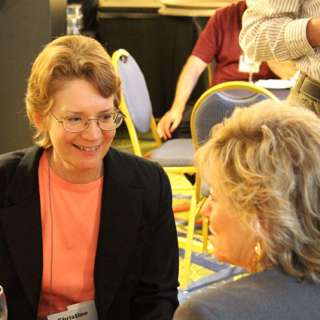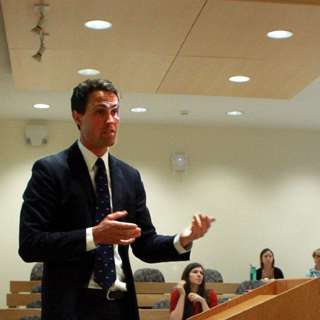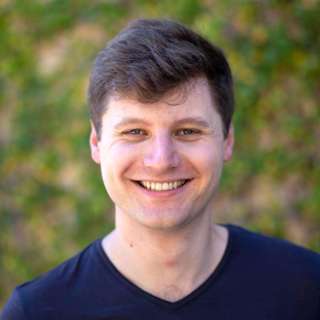
#10 - Nick Beckstead on how to spend billions of dollars preventing human extinction
What if you were in a position to give away billions of dollars to improve the world? What would you do with it? This is the problem facing Program Officers at the Open Philanthropy Project - people like Dr Nick Beckstead. Following a PhD in philosophy, Nick works to figure out where money can do the most good. He’s been involved in major grants in a wide range of areas, including ending factory farming through technological innovation, safeguarding the world from advances in biotechnology and artificial intelligence, and spreading rational compassion. Full transcript, coaching application form, overview of the conversation, and links to resources discussed in the episode: This episode is a tour through some of the toughest questions ‘effective altruists’ face when figuring out how to best improve the world, including: * * Should we mostly try to help people currently alive, or future generations? Nick studied this question for years in his PhD thesis, On the Overwhelming Importance of Shaping the Far Future. (The first 31 minutes is a snappier version of my conversation with Toby Ord.) * Is clean meat (aka *in vitro* meat) technologically feasible any time soon, or should we be looking for plant-based alternatives? * What are the greatest risks to human civilisation? * To stop malaria is it more cost-effective to use technology to eliminate mosquitos than to distribute bed nets? * Should people who want to improve the future work for changes that will be very useful in a specific scenario, or just generally try to improve how well humanity makes decisions? * What specific jobs should our listeners take in order for Nick to be able to spend more money in useful ways to improve the world? * Should we expect the future to be better if the economy grows more quickly - or more slowly? Get free, one-on-one career advice We’ve helped dozens of people compare between their options, get introductions, and jobs important for the the long-run future. If you want to work on any of the problems discussed in this episode, find out if our coaching can help you.
11 Okt 20171h 51min

#9 - Christine Peterson on how insecure computers could lead to global disaster, and how to fix it
Take a trip to Silicon Valley in the 70s and 80s, when going to space sounded like a good way to get around environmental limits, people started cryogenically freezing themselves, and nanotechnology looked like it might revolutionise industry – or turn us all into grey goo. Full transcript, coaching application form, overview of the conversation, and extra resources to learn more: In this episode of the 80,000 Hours Podcast Christine Peterson takes us back to her youth in the Bay Area, the ideas she encountered there, and what the dreamers she met did as they grew up. We also discuss how she came up with the term ‘open source software’ (and how she had to get someone else to propose it). Today Christine helps runs the Foresight Institute, which fills a gap left by for-profit technology companies – predicting how new revolutionary technologies could go wrong, and ensuring we steer clear of the downsides. We dive into: * Whether the poor security of computer systems poses a catastrophic risk for the world. Could all our essential services be taken down at once? And if so, what can be done about it? * Can technology ‘move fast and break things’ without eventually breaking the world? Would it be better for technology to advance more quickly, or more slowly? * How Christine came up with the term ‘open source software’ (and why someone else had to propose it). * Will AIs designed for wide-scale automated hacking make computers more or less secure? * Would it be good to radically extend human lifespan? Is it sensible to cryogenically freeze yourself in the hope of being resurrected in the future? * Could atomically precise manufacturing (nanotechnology) really work? Why was it initially so controversial and why did people stop worrying about it? * Should people who try to do good in their careers work long hours and take low salaries? Or should they take care of themselves first of all? * How she thinks the the effective altruism community resembles the scene she was involved with when she was wrong, and where it might be going wrong. Get free, one-on-one career advice We’ve helped dozens of people compare between their options, get introductions, and jobs important for the the long-run future. If you want to work on any of the problems discussed in this episode, find out if our coaching can help you.
4 Okt 20171h 45min

#8 - Lewis Bollard on how to end factory farming in our lifetimes
Every year tens of billions of animals are raised in terrible conditions in factory farms before being killed for human consumption. Over the last two years Lewis Bollard – Project Officer for Farm Animal Welfare at the Open Philanthropy Project – has conducted extensive research into the best ways to eliminate animal suffering in farms as soon as possible. This has resulted in $30 million in grants to farm animal advocacy. Full transcript, coaching application form, overview of the conversation, and extra resources to learn more: We covered almost every approach being taken, which ones work, and how individuals can best contribute through their careers. We also had time to venture into a wide range of issues that are less often discussed, including: * Why Lewis thinks insect farming would be worse than the status quo, and whether we should look for ‘humane’ insecticides; * How young people can set themselves up to contribute to scientific research into meat alternatives; * How genetic manipulation of chickens has caused them to suffer much more than their ancestors, but could also be used to make them better off; * Why Lewis is skeptical of vegan advocacy; * Why he doubts that much can be done to tackle factory farming through legal advocacy or electoral politics; * Which species of farm animals is best to focus on first; * Whether fish and crustaceans are conscious, and if so what can be done for them; * Many other issues listed below in the Overview of the discussion. Get free, one-on-one career advice We’ve helped dozens of people compare between their options, get introductions, and jobs important for the the long-run future. If you want to work on any of the problems discussed in this episode, find out if our coaching can help you. Overview of the discussion **2m40s** What originally drew you to dedicate your career to helping animals and why did Open Philanthropy end up focusing on it? **5m40s** Do you have any concrete way of assessing the severity of animal suffering? **7m10s** Do you think the environmental gains are large compared to those that we might hope to get from animal welfare improvement? **7m55s** What grants have you made at Open Phil? How did you go about deciding which groups to fund and which ones not to fund? **9m50s** Why does Open Phil focus on chickens and fish? Is this the right call? More...
27 Sep 20173h 16min

#7 - Julia Galef on making humanity more rational, what EA does wrong, and why Twitter isn’t all bad
The scientific revolution in the 16th century was one of the biggest societal shifts in human history, driven by the discovery of new and better methods of figuring out who was right and who was wrong. Julia Galef - a well-known writer and researcher focused on improving human judgment, especially about high stakes questions - believes that if we could again develop new techniques to predict the future, resolve disagreements and make sound decisions together, it could dramatically improve the world across the board. We brought her in to talk about her ideas. This interview complements a new detailed review of whether and how to follow Julia’s career path. Apply for personalised coaching, see what questions are asked when, and read extra resources to learn more. Julia has been host of the Rationally Speaking podcast since 2010, co-founder of the Center for Applied Rationality in 2012, and is currently working for the Open Philanthropy Project on an investigation of expert disagreements. In our conversation we ended up speaking about a wide range of topics, including: * Her research on how people can have productive intellectual disagreements. * Why she once planned to become an urban designer. * Why she doubts people are more rational than 200 years ago. * What makes her a fan of Twitter (while I think it’s dystopian). * Whether people should write more books. * Whether it’s a good idea to run a podcast, and how she grew her audience. * Why saying you don’t believe X often won’t convince people you don’t. * Why she started a PhD in economics but then stopped. * Whether she would recommend an unconventional career like her own. * Whether the incentives in the intelligence community actually support sound thinking. * Whether big institutions will actually pick up new tools for improving decision-making if they are developed. * How to start out pursuing a career in which you enhance human judgement and foresight. Get free, one-on-one career advice to help you improve judgement and decision-making We’ve helped dozens of people compare between their options, get introductions, and jobs important for the the long-run future. **If you want to work on any of the problems discussed in this episode, find out if our coaching can help you:** APPLY FOR COACHING Overview of the conversation **1m30s** So what projects are you working on at the moment? **3m50s** How are you working on the problem of expert disagreement? **6m0s** Is this the same method as the double crux process that was developed at the Center for Applied Rationality? **10m** Why did the Open Philanthropy Project decide this was a very valuable project to fund? **13m** Is the double crux process actually that effective? **14m50s** Is Facebook dangerous? **17m** What makes for a good life? Can you be mistaken about having a good life? **19m** Should more people write books? Read more...
13 Sep 20171h 14min

#6 - Toby Ord on why the long-term future matters more than anything else & what to do about it
Of all the people whose well-being we should care about, only a small fraction are alive today. The rest are members of future generations who are yet to exist. Whether they’ll be born into a world that is flourishing or disintegrating – and indeed, whether they will ever be born at all – is in large part up to us. As such, the welfare of future generations should be our number one moral concern. This conclusion holds true regardless of whether your moral framework is based on common sense, consequences, rules of ethical conduct, cooperating with others, virtuousness, keeping options open – or just a sense of wonder about the universe we find ourselves in. That’s the view of Dr Toby Ord, a philosophy Fellow at the University of Oxford and co-founder of the effective altruism community. In this episode of the 80,000 Hours Podcast Dr Ord makes the case that aiming for a positive long-term future is likely the best way to improve the world. Apply for personalised coaching, see what questions are asked when, and read extra resources to learn more. We then discuss common objections to long-termism, such as the idea that benefits to future generations are less valuable than those to people alive now, or that we can’t meaningfully benefit future generations beyond taking the usual steps to improve the present. Later the conversation turns to how individuals can and have changed the course of history, what could go wrong and why, and whether plans to colonise Mars would actually put humanity in a safer position than it is today. This episode goes deep into the most distinctive features of our advice. It’s likely the most in-depth discussion of how 80,000 Hours and the effective altruism community think about the long term future and why - and why we so often give it top priority. It’s best to subscribe, so you can listen at leisure on your phone, speed up the conversation if you like, and get notified about future episodes. You can do so by searching ‘80,000 Hours’ wherever you get your podcasts. Want to help ensure humanity has a positive future instead of destroying itself? We want to help. We’ve helped 100s of people compare between their options, get introductions, and jobs important for the the long-run future. If you want to work on any of the problems discussed in this episode, such as artificial intelligence or biosecurity, find out if our coaching can help you. Overview of the discussion 3m30s - Why is the long-term future of humanity such a big deal, and perhaps the most important issue for us to be thinking about? 9m05s - Five arguments that future generations matter 21m50s - How bad would it be if humanity went extinct or civilization collapses? 26m40s - Why do people start saying such strange things when this topic comes up? 30m30s - Are there any other reasons to prioritize thinking about the long-term future of humanity that you wanted to raise before we move to objections? 36m10s - What is this school of thought called? Read more...
6 Sep 20172h 8min

#5 - Alex Gordon-Brown on how to donate millions in your 20s working in quantitative trading
Quantitative financial trading is one of the highest paying parts of the world’s highest paying industry. 25 to 30 year olds with outstanding maths skills can earn millions a year in an obscure set of ‘quant trading’ firms, where they program computers with predefined algorithms to allow them to trade very quickly and effectively. Update: we're headhunting people for quant trading roles Want to be kept up to date about particularly promising roles we're aware of for earning to give in quantitative finance? Get notified by letting us know here. This makes it an attractive place to work for people who want to ‘earn to give’, and we know several people who are able to donate over a million dollars a year to effective charities by working in quant trading. Who are these people? What is the job like? And is there a risk that their work harms the world in other ways? Apply for personalised coaching, see what questions are asked when, and read extra resources to learn more. I spoke at length with Alexander Gordon-Brown, who has worked as a quant trader in London for the last three and a half years and donated hundreds of thousands of pounds. We covered: * What quant traders do and how much they earn. * Whether their work is beneficial or harmful for the world. * How to figure out if you’re a good personal fit for quant trading, and if so how to break into the industry. * Whether he enjoys the work and finds it motivating, and what other careers he considered. * What variety of positions are on offer, and what the culture is like in different firms. * How he decides where to donate, and whether he has persuaded his colleagues to join him. Want to earn to give for effective charities in quantitative trading? We want to help. We’ve helped dozens of people plan their earning to give careers, and put them in touch with mentors. If you want to work in quant trading, apply for our free coaching service. APPLY FOR COACHING What questions are asked when? 1m30s - What is quant trading and how much do they earn? 4m45s - How do quant trading firms manage the risks they face and avoid bankruptcy? 7m05s - Do other traders also donate to charity and has Alex convinced them? 9m45s - How do they track the performance of each trader? 13m00s - What does the daily schedule of a quant trader look like? What do you do in the morning, afternoon, etc? More...
28 Aug 20171h 45min

#4 - Howie Lempel on pandemics that kill hundreds of millions and how to stop them
What disaster is most likely to kill more than 10 million human beings in the next 20 years? Terrorism? Famine? An asteroid? Actually it’s probably a pandemic: a deadly new disease that spreads out of control. We’ve recently seen the risks with Ebola and swine flu, but they pale in comparison to the Spanish flu which killed 3% of the world’s population in 1918 to 1920. A pandemic of that scale today would kill 200 million. In this in-depth interview I speak to Howie Lempel, who spent years studying pandemic preparedness for the Open Philanthropy Project. We spend the first 20 minutes covering his work at the foundation, then discuss how bad the pandemic problem is, why it’s probably getting worse, and what can be done about it. Full transcript, apply for personalised coaching to help you work on pandemic preparedness, see what questions are asked when, and read extra resources to learn more. In the second half we go through where you personally could study and work to tackle one of the worst threats facing humanity. Want to help ensure we have no severe pandemics in the 21st century? We want to help. We’ve helped dozens of people formulate their plans, and put them in touch with academic mentors. If you want to work on pandemic preparedness safety, apply for our free coaching service. APPLY FOR COACHING 2m - What does the Open Philanthropy Project do? What’s it like to work there? 16m27s - What grants did OpenPhil make in pandemic preparedness? Did they work out? 22m56s - Why is pandemic preparedness such an important thing to work on? 31m23s - How many people could die in a global pandemic? Is Contagion a realistic movie? 37m05s - Why the risk is getting worse due to scientific discoveries 40m10s - How would dangerous pathogens get released? 45m27s - Would society collapse if a billion people die in a pandemic? 49m25s - The plague, Spanish flu, smallpox, and other historical pandemics 58m30s - How are risks affected by sloppy research security or the existence of factory farming? 1h7m30s - What's already being done? Why institutions for dealing with pandemics are really insufficient. 1h14m30s - What the World Health Organisation should do but can’t. 1h21m51s - What charities do about pandemics and why they aren’t able to fix things 1h25m50s - How long would it take to make vaccines? 1h30m40s - What does the US government do to protect Americans? It’s a mess. 1h37m20s - What kind of people do you know work on this problem and what are they doing? 1h46m30s - Are there things that we ought to be banning or technologies that we should be trying not to develop because we're just better off not having them? 1h49m35s - What kind of reforms are needed at the international level? 1h54m40s - Where should people who want to tackle this problem go to work? 1h59m50s - Are there any technologies we need to urgently develop? 2h04m20s - What about trying to stop humans from having contact with wild animals? 2h08m5s - What should people study if they're young and choosing their major; what should they do a PhD in? Where should they study, and with who? More...
23 Aug 20172h 35min

#3 - Dario Amodei on OpenAI and how AI will change the world for good and ill
Just two years ago OpenAI didn’t exist. It’s now among the most elite groups of machine learning researchers. They’re trying to make an AI that’s smarter than humans and have $1b at their disposal. Even stranger for a Silicon Valley start-up, it’s not a business, but rather a non-profit founded by Elon Musk and Sam Altman among others, to ensure the benefits of AI are distributed broadly to all of society. I did a long interview with one of its first machine learning researchers, Dr Dario Amodei, to learn about: * OpenAI’s latest plans and research progress. * His paper *Concrete Problems in AI Safety*, which outlines five specific ways machine learning algorithms can act in dangerous ways their designers don’t intend - something OpenAI has to work to avoid. * How listeners can best go about pursuing a career in machine learning and AI development themselves. Full transcript, apply for personalised coaching to work on AI safety, see what questions are asked when, and read extra resources to learn more. 1m33s - What OpenAI is doing, Dario’s research and why AI is important 13m - Why OpenAI scaled back its Universe project 15m50s - Why AI could be dangerous 24m20s - Would smarter than human AI solve most of the world’s problems? 29m - Paper on five concrete problems in AI safety 43m48s - Has OpenAI made progress? 49m30s - What this back flipping noodle can teach you about AI safety 55m30s - How someone can pursue a career in AI safety and get a job at OpenAI 1h02m30s - Where and what should people study? 1h4m15s - What other paradigms for AI are there? 1h7m55s - How do you go from studying to getting a job? What places are there to work? 1h13m30s - If there's a 17-year-old listening here what should they start reading first? 1h19m - Is this a good way to develop your broader career options? Is it a safe move? 1h21m10s - What if you’re older and haven’t studied machine learning? How do you break in? 1h24m - What about doing this work in academia? 1h26m50s - Is the work frustrating because solutions may not exist? 1h31m35s - How do we prevent a dangerous arms race? 1h36m30s - Final remarks on how to get into doing useful work in machine learning
21 Jul 20171h 38min






















